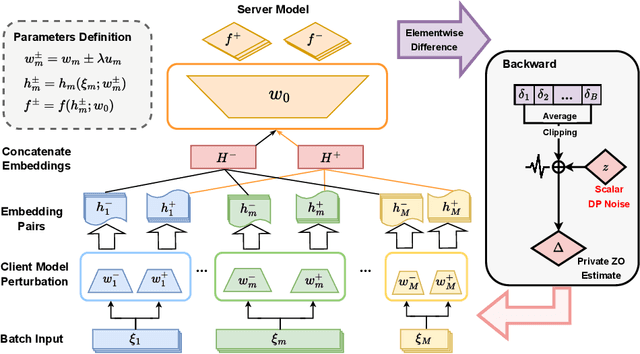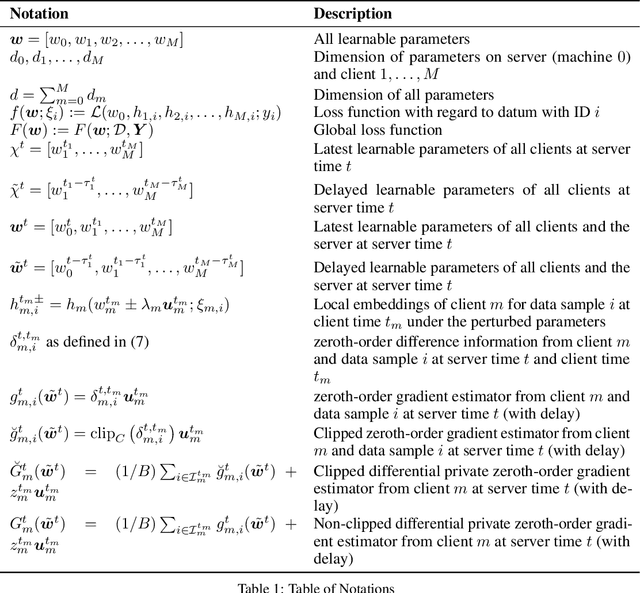DPZV: Resource Efficient ZO Optimization For Differentially Private VFL
Paper and Code
Feb 27, 2025



Vertical Federated Learning (VFL) enables collaborative model training across feature-partitioned data, yet faces significant privacy risks and inefficiencies when scaling to large models. We propose DPZV, a memory-efficient Zeroth-Order(ZO) optimization framework that integrates differential privacy (DP) with vertical federated learning, addressing three critical challenges: (1) privacy vulnerabilities from gradient leakage, (2) high computation/communication costs of first-order methods, and (3) excessive memory footprint in conventional zeroth-order approaches. Our framework eliminates backpropagation through two-point gradient estimation, reducing client memory usage by 90\% compared to first-order counterparts while enabling asynchronous communication. By strategically injecting Gaussian noise on the server, DPZV achieves rigorous $(\epsilon, \delta)$-DP guarantees without third-party trust assumptions. Theoretical analysis establishes a convergence rate matching centralized case under non-convex objectives. Extensive experiments on image and NLP benchmarks demonstrate that DPZV outperforms all baselines in accuracy while providing strong privacy assurances ($\epsilon \leq 10$) and requiring far fewer computation resources, establishing new state-of-the-art privacy-utility tradeoffs for resource-constrained VFL deployments.
 Add to Chrome
Add to Chrome Add to Firefox
Add to Firefox Add to Edge
Add to Edge